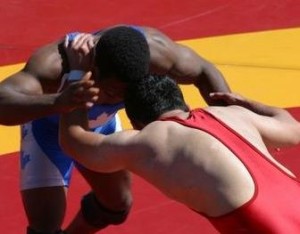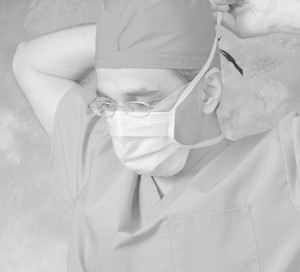Archive for August, 2009
Saturday, August 29th, 2009
 A patient sent us an email regarding his hair loss condition. He has male patterned baldness and it is still progressing. He already met with a dermatologist and had several studies done prior to the email and was even using Chronostim for approximately 3 months. Now that he’s used up the bottles of Chronostim, he has noticed no change is his hair loss situation. He wants to have a full head of hair and does not want to take hair loss medication for the rest of his life. Before we forget, his wedding is in 2 months. A patient sent us an email regarding his hair loss condition. He has male patterned baldness and it is still progressing. He already met with a dermatologist and had several studies done prior to the email and was even using Chronostim for approximately 3 months. Now that he’s used up the bottles of Chronostim, he has noticed no change is his hair loss situation. He wants to have a full head of hair and does not want to take hair loss medication for the rest of his life. Before we forget, his wedding is in 2 months.
Chronostim has not been clinically proven to correct or prevent male patterned baldness or any other form of hair loss. It should not be considered a replacement option for medications that have been both proven effective and FDA approved safe for consumption like Propecia (finasteride) DHT blocker.
We highly suggest that all patients experiencing any form of hair loss to be seen by a good hair transplant surgeon and have a miniaturization study done. If the condition is in fact male patterned baldness or androgenetic alopecia, finasteride should be a part of your everyday hair loss treatment plan.
Hair restoration surgery can restore the areas damaged by hair loss by transplanting healthy permanent hair from the donor. In this situation, however, neither of the aforementioned will make enough of a visible difference for the day of your wedding. These procedures take time to show their fullest effect. There are cosmetic options available like Toppik that can cover the balding or thinning areas of your hair through the use of microfibers. If anything, you can use that product for the wedding day while you either consider a hair transplant surgery or at least try using Propecia (finasteride) so that you may see true results a few months after your wedding.
Tags: balding prevention, chronostim, dht, finasteride, hair loss, hair loss product, hair loss treatment, hair transplant, hair transplant surgery, male patterned hairloss, men hair loss, toppik
Posted in hair loss medication, hair loss products, men hair restoration, Uncategorized | No Comments »
Wednesday, August 26th, 2009
Hair loss supplement Biotin is vitamin H (B7) with the chemical formula C10H15N2O3S (you don’t have to memorize it!). It is a water-soluble B-vitamin complex. B-vitamins or Biotin is necessary for healthy cell growth, the metabolism of fats and amino acids, and the production of fatty acids. It plays a role in the acid cycle or the process by which biochemical energy is generated during aerobic respiration. It’s often recommended for use in strengthening hair and nails. It can be found in many cosmetic and health products for hair and nails as well.
Now that we understand Biotin a little bit better, now we can say whether we recommend it or not. Since Biotin is only a vitamin supplement, consumption of this product by healthy individuals will not result in a decrease of hair loss. In fact, intestinal bacteria are produced to consume any excess vitamins in your intestinal tract. Lack of vitamins and minerals may cause hair loss in people with mal-absorption but normal individuals need not worry.
Tags: B-complex, biotin, hair loss, hair loss product, hair loss treatment, hair loss vitamin, vitamin B7, vitamin H
Posted in Bakersfield hair transplant, hair loss medication, hair loss products, men hair restoration, Orange County hair transplant, women hair loss | No Comments »
Monday, August 24th, 2009
In an email sent by our most recent patient he noted that his brother pointed out the “white stuff” around the transplanted hair follicles. He said that he researched other patients online but was unable to find something similar to his procedure, he stated, ” I wanted to find out what it is.”
The white portion around the follicle is a specific part of the transplanted graft. One thing that should be taken into account is that you’re not only dealing with a hair follicle but with an entire organ. A hair graft consists of the collagen band around the follicle, microscopic muscle, small portion of the epithelium (superficial layer of skin) and small supporting vessels. The white portion is simply the epithelium. The goal in hair transplantation is not to bury the hair grafts. This can help to prevent possible folliculitis, dimpling of the skin or sebaceous cysts from occurring. We make sure to keep the hair graft slightly elevated from the surface of the skin to prevent these complications.
The white portion of the hair graft will eventually dry up and fall off a few days after the surgical procedure. This little technique alone can help prevent many post-op issues and patients have no real need to worry about any further complications.
Tags: buried grafts, folliculitis, grafts, hair follicle, hair loss blog, sebaceous cyst, skin dimpling, transplanted grafts, white spots after hair transplant, white stuff after hair transplant
Posted in hair transplant, men hair restoration | No Comments »
Saturday, August 22nd, 2009

We have a patient who is very physically active. He had a hair transplant procedure and was concerned if he could continue competitive mixed martial arts in the next 3 weeks. “Do you think my head will be okay if I’m doing that? Is it high risk for new transplant hair or donor scars?”
By the time the patient has his mixed martial arts competition it will be over 3 weeks after his hair transplant procedure. At this point hair grafts have already settled and healed and the donor area is closed. The only real concern is putting too much tension on the edges of the healing donor wound. This may cause the wound to widen or stretch.
Most physical activities are fine and should not pose an issue to the donor scar but we do suggest avoiding any sports that may add tension or possibility of stretching until after 1 month from your surgery. The donor scar should be stronger and able to handle any additional stress as you would have normally. However, we do suggest a period of at least 3 months for all aggressive sports just to be safe but that is definitely up to your own personal discretion.
Tags: activity after hair transplant, after hair transplant, donor area, donor scar, martial art, mix martial art, scar stretching, scar widening
Posted in hair transplant, Hair Transplant Procedure, men hair restoration | No Comments »
Saturday, August 15th, 2009
 In our previous blogs we’ve touched on the subject of “best hair transplant doctor” and how to choose one. This is one of the most addressed topics so we see it fit to talk about it once more. Our best suggestion for any and all patients is to look into the quality of work and not the quantity that the work will be. There is more to this process and we’ll explain as we go. In our previous blogs we’ve touched on the subject of “best hair transplant doctor” and how to choose one. This is one of the most addressed topics so we see it fit to talk about it once more. Our best suggestion for any and all patients is to look into the quality of work and not the quantity that the work will be. There is more to this process and we’ll explain as we go.
Searching for a good hair restoration surgeon can be a tedious job. Large cities like Los Angeles and Orange County have a large network of cosmetic and hair transplant referrals. The hair restoration business is still considered very new and continues to evolve as new findings come to light. Because of this the level of surgical experience can vary greatly between all hair transplant surgeons vastly. Choosing a surgeon whether for cosmetic plastic surgery or hair restoration should not be based solely on experience but by the quality of their work. Statements like “best and most experienced hair transplant surgeon” don’t make the statement true but you have the right to see for yourself.
The best way to know if the surgeon is the best option for your hair transplant is by knowing more about the surgeon and by seeing or speaking with them personally. Most hair transplant clinics offer a free initial consultation and can be with the doctor themselves. By doing this you get to experience the doctor first hand. This way you can truly appreciate a good technique from a knowledgeable doctor when you see one.
One of the last suggestions is to do research on the practicing surgeon and the procedures available. Some locations, like ours, specialize in state-of-the-art exclusive follicular unit transplants (FUT), mega sessions for patients with extensive hair loss and follicular unit extraction (FUE) or minimally invasive hair restoration. This procedure is used to selectively extract hair grafts from the donor area with removing a strip as in traditional FUT procedure.
The hair transplant surgeon and medical director of US Hair Restoration sees a variety of patients with different hair transplant results from other facilities. Some of which can be noted very highly and others that would make you question the quality of work. All in all, the end result is that it would be unfair and hard to say who the best hair transplant surgeon in Southern California is. Today’s cosmetic market makes it easy for anyone to look their best. Modern hair restoration techniques are in high demand is most metropolitan areas and the demand keeps growing. All in all, we highly suggest that anyone considering hair restoration surgery to get educated about hair restoration first and meet with a hair transplant surgeon with a list of questions you want answered personally. Make sure this surgeon is someone you can trust.
Tags: best hair restoration, Best hair transplant, best hair transplant doctor, Best hair transplant doctors, best hair transplant in Los Angeles, best hair transplant surgeon, hair transplant surgeon, quality hair transplant
Posted in California hair transplant, Orange County hair transplant, Uncategorized | No Comments »
|
|
 A patient sent us an email regarding his hair loss condition. He has male patterned baldness and it is still progressing. He already met with a dermatologist and had several studies done prior to the email and was even using Chronostim for approximately 3 months. Now that he’s used up the bottles of Chronostim, he has noticed no change is his hair loss situation. He wants to have a full head of hair and does not want to take hair loss medication for the rest of his life. Before we forget, his wedding is in 2 months.
A patient sent us an email regarding his hair loss condition. He has male patterned baldness and it is still progressing. He already met with a dermatologist and had several studies done prior to the email and was even using Chronostim for approximately 3 months. Now that he’s used up the bottles of Chronostim, he has noticed no change is his hair loss situation. He wants to have a full head of hair and does not want to take hair loss medication for the rest of his life. Before we forget, his wedding is in 2 months.

